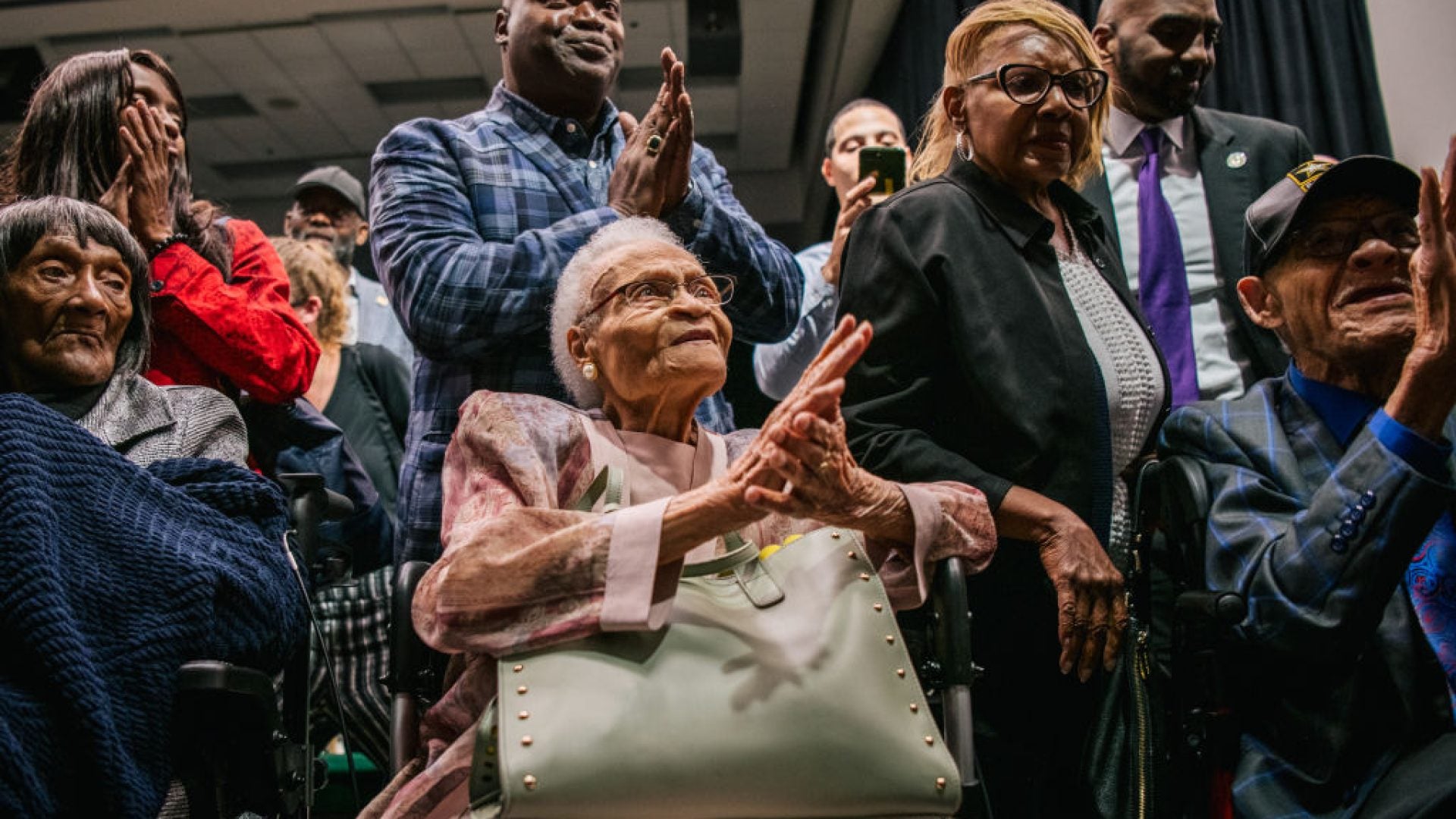
This month marks the 103rd anniversary of the Tulsa Race Massacre, the worst instance of racial violence in this country. The two remaining survivors, 109-year-old Lessie Benningfield Randle and 110-year-old Viola Ford Fletcher continue their pursuit of justice over a century later.
In 1921, Tulsa, Oklahoma, was well-known for the Greenwood District and its affluent Black community. The community was thriving, and the business district was aptly nicknamed the “Black Wall Street.” But that all was destroyed over the course of 18 hours on May 31 and June 1 of that year. “More than one thousand homes and businesses were destroyed, while credible estimates of deaths range from fifty to three hundred. By the time the violence ended, the city had been placed under martial law, thousands of Tulsans were being held under armed guard, and the state’s second-largest African American community had been burned to the ground” by a violent mob of white rioters.
But it wasn’t until 1997, that “the Oklahoma state legislature established the Oklahoma Commission to Study the Tulsa Race Riot of 1921.” The commission made a recommendation for reparations and a memorial in honor of the victims of the massacre. However, when state legislators passed the 1921 Tulsa Race Riot Reconciliation Act, 80 years to the date after the massacre on June 1, 2001, the law only “called for the building of a memorial, incentives for investment in Greenwood, and the creation of scholarships for low-income Tulsans,” and did not include any funding allocations or reparations.
Two years later in February of 2003, “more than 200 plaintiffs, comprised of massacre survivors and their descendants, filed a lawsuit against the City of Tulsa, the Tulsa Police Department, and the State of Oklahoma.” The U.S. District Court for the Northern District of Oklahoma ended up dismissing their lawsuit because the statute of limitations had expired and the U.S. Supreme Court declined appeals.
Despite these setbacks, activists never gave up. Every Wednesday beginning in September of 2018, Reverend R. A. Turner alongside supporters have stood outside of Tulsa City Hall, issuing calls “for reparations and repentance for the massacre.”
Another ally was found in Regina Goodwin, a descendant of massacre survivors and Democratic state representative for the Oklahoma district that encompasses Greenwood. Goodwin chairs the Oklahoma Legislative Black Caucus and has been a stalwart in the fight for reparations.
“We’re not going anywhere. As long as there’s injustice, there will be folks on the side of right that will be trying to get folks in Oklahoma to do the right thing. Oklahoma is not OK,” said Goodwin.
Randle and Fletcher, who were just children at the time of the massacre, finally got their day in court this April. They are the first to even make it this far out of more than 100 lawsuits that have attempted to seek restitution for these horrific events. The third plaintiff, Hughes Van Ellis, Fletcher’s younger brother, died at the age of 102 last October before court proceedings.
In a joint statement before their historic courtroom debut, Randle and Fletcher expressed their gratitude over the fact that their “now-weary bodies have held on long enough to witness an America, and an Oklahoma, that provides race massacre survivors with the opportunity to access the legal system…Many have come before us who have knocked and banged on the courthouse doors, only to be turned around.”
Now, the two await the culmination of this latest four-year-long legal battle and for the Oklahoma Supreme Court to weigh in and decide whether they will be able to go to trial in hopes of receiving reparations in the form of “land and property that was destroyed or stolen by returned to survivors and their descendants.”
On the federal level, a bi-partisan bill is proceeding through the U.S. Senate, which would “grant national monument status to Greenwood.”